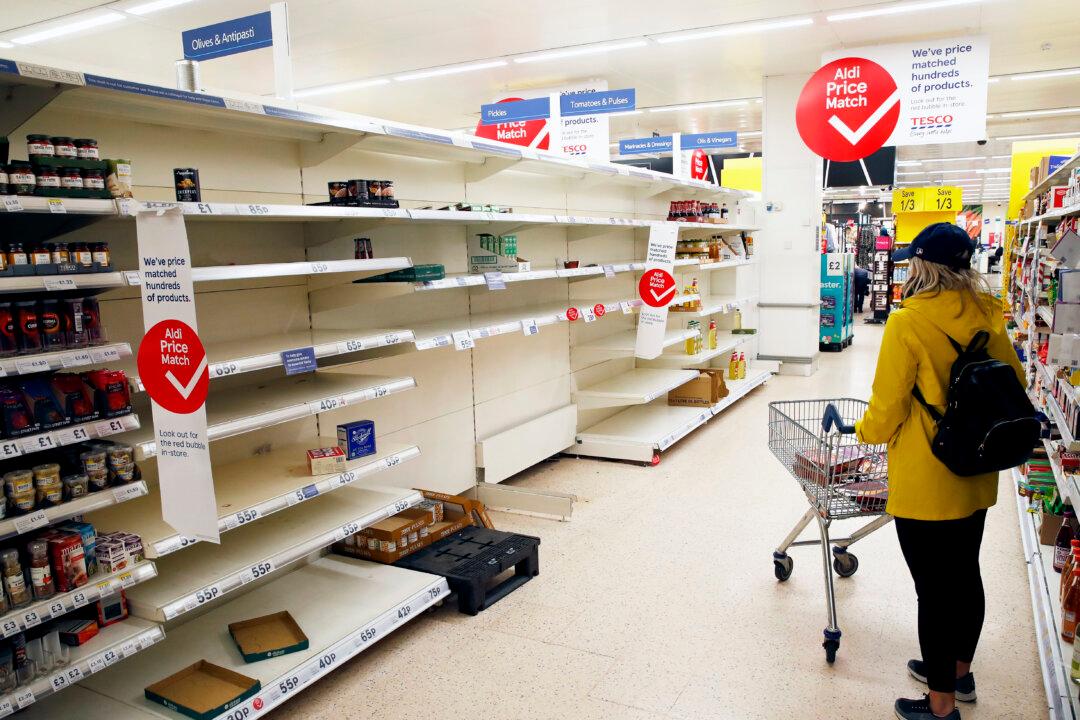The food supply chain could face disruption in the UK, and especially in Northern Ireland, after the New Year when the Brexit transition period ends, an industry leader has warned.
Around 40 percent of food in the UK is imported on average across the year, but the number is probably “significantly north of 60 percent” at the moment due to the season, Ian Wright, CEO of the Food and Drink Federation (FDF), told MPs on Tuesday.





